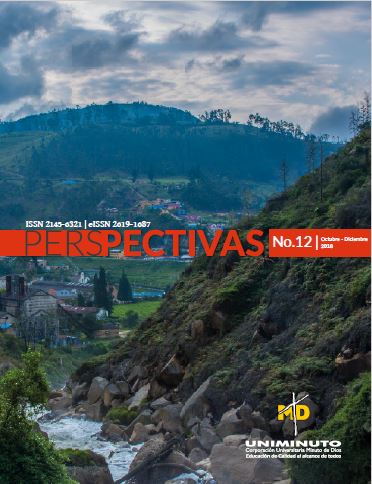Economía social solidaria como buen vivir: Diagnóstico en América Latina
Barra lateral del artículo
Cómo citar
Detalles del artículo
Contenido principal del artículo
Resumen
La economía social y solidaria en América Latina nace como concepto hacia mediados de los años setenta, inicialmente en Brasil, Colombia,
Argentina, Chile y Ecuador, con el fin de lograr un factor de igualdad de condiciones entre todas las personas pertenecientes a una sociedad. Sin
embargo, es necesario recalcar que la idea de economía social y solidaria inició desde tiempo atrás, puesto que a finales del siglo XVIII ya existían
comunidades que se unían con la intención de hacer frente a las dificultades económicas de la época. Este concepto, en esencia, busca abrir
mercados o convenios que logren mejorar la calidad de vida de las personas con el ánimo de minimizar los intereses propios, dando prioridad a
los intereses colectivos y generando de esta manera unanimidad en la población. El fundamento principal de la existencia de este nuevo modelo
económico es el de concretar una participación más activa de las sociedades con menores posibilidades de intervención en la economía convencional,
ya que se debe tener en cuenta que el modelo económico que prevalece en la actualidad dificulta que los países en vías de desarrolloalternativas logren un cambio significativo en sus condiciones de vida.
Referencias
Barea, J. (1990). Concepto y agentes de la Economía Social. ciriec, 109-117.
CIREC. (1999). Revista de Economía Pública, Social y Cooperativa, 33, 74-114.
Coraggio, J. L. (2011). Economía social y solidaria. El trabajo antes que el capital. Quito: Ediciones Abya- Yala.
De Sousa Santos, B. (2011). Producir para vivir, los caminos de la producción no capitalista. México: FCE.
Gudynas, E. (2011). Agencia Latinoamericana de Información-alai. Recuperado de https://www.alainet.org/active/48052
Huanacuni Mamani, F. (2010). Buen Vivir / Vivir Bien Filosofía, políticas, estrategias y experiencias regionales andinas. Lima: Coordinadora Andina de Organizaciones Indígenas (CAOI).
Pérez de Mendiguren, L., & Guridy, L. (2014). La dimensión económica del desarrollo humano local: La Economía Social y Solidaria. Bilbao: Universidad
del País Vasco / Creative Commons.
Artículos más leídos del mismo autor/a
- Víctor Enrique Bonilla Castillo, Karen Julieth Hernández Sarmiento, Retos y aportes de las mujeres en el sector floricultor de la región Sibaté Cundinamarca , Perspectivas: Vol. 4 Núm. 16 (2019): Octubre - Diciembre

